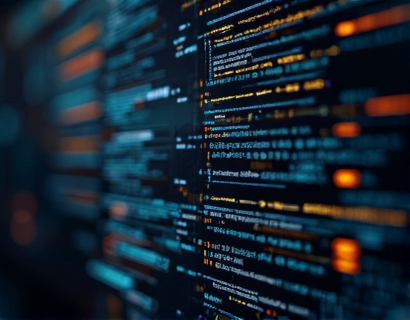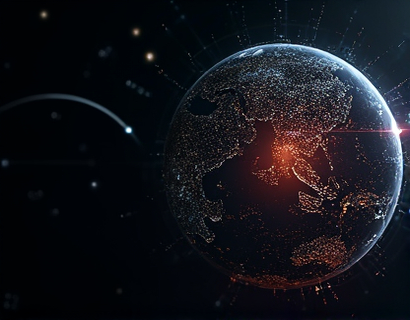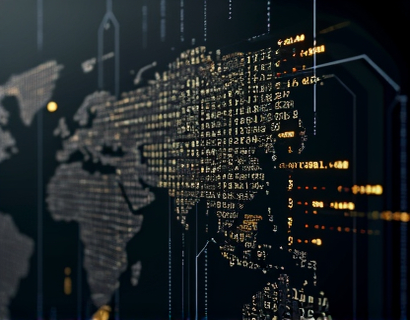AI-Powered Task Management: Simplify Life and Boost Productivity with Intelligent Organizational Tools
In the fast-paced modern world, managing tasks efficiently and maintaining a high level of productivity is more crucial than ever. The integration of Artificial Intelligence (AI) into task management tools has revolutionized the way individuals approach their daily activities. These advanced intelligent tools offer unprecedented capabilities to simplify tasks, enhance focus, and streamline daily routines. This article delves into the transformative power of AI in personal organization and productivity, providing practical insights and strategies to leverage these technologies for greater efficiency and goal achievement.
AI-powered task management tools are designed to understand and adapt to individual work patterns, preferences, and priorities. By analyzing user behavior and data, these tools can predict tasks, suggest optimal times for task execution, and even automate repetitive processes. This level of customization ensures that users are not only more organized but also more productive, as they can concentrate on high-value activities that require human creativity and decision-making.
Enhancing Task Visibility and Prioritization
One of the primary benefits of AI in task management is the enhancement of task visibility and prioritization. Traditional task lists often overwhelm users with too much information, making it difficult to focus on what truly matters. AI tools, however, use algorithms to categorize and prioritize tasks based on urgency, importance, and deadlines. This ensures that users are always aware of their most critical tasks, reducing the stress associated with managing multiple responsibilities.
For instance, an AI task manager can analyze emails, calendar entries, and previous task completion patterns to determine which tasks need immediate attention. It can then highlight these tasks in a dashboard, providing a clear and concise overview of the day's priorities. This feature is particularly useful for professionals who juggle multiple projects and deadlines, as it helps them stay focused and avoid the pitfalls of procrastination.
Automating Repetitive Tasks
Repetitive tasks are a significant drain on productivity, consuming time and mental energy that could be better spent on more strategic activities. AI-powered tools excel in automating these mundane tasks, freeing up valuable time for more meaningful work. For example, AI can automatically schedule meetings, send follow-up emails, and even generate reports based on predefined templates. This automation not only saves time but also reduces the risk of human error, ensuring that tasks are completed accurately and efficiently.
Moreover, AI can learn from user preferences and adapt its automation capabilities over time. If a user consistently approves certain types of requests or follows specific workflows, the AI will recognize these patterns and automate them without manual intervention. This continuous learning and adaptation make AI task managers highly efficient and tailored to individual needs.
Improving Time Management
Effective time management is a cornerstone of productivity, and AI tools offer sophisticated solutions to help users optimize their time usage. By integrating with calendars and time-tracking applications, AI can provide real-time insights into how time is spent throughout the day. This data can be used to identify time-wasting activities and suggest more efficient alternatives.
For example, an AI task manager might notice that a user spends a significant amount of time in meetings that do not contribute to their primary goals. It can then propose alternative meeting formats, such as brief stand-up meetings or asynchronous communication, to reduce meeting time without compromising collaboration. Additionally, AI can suggest optimal times for task execution based on the user's energy levels and focus patterns, ensuring that critical tasks are completed when the user is most productive.
Enhancing Collaboration and Communication
Collaboration is a vital aspect of modern work environments, and AI-powered task management tools significantly enhance this process. These tools facilitate seamless communication and coordination among team members, ensuring that everyone is on the same page and working towards common goals. AI can centralize task assignments, progress updates, and feedback in a single platform, reducing the need for fragmented communication channels.
For instance, an AI task manager can automatically assign tasks to team members based on their availability and expertise, and send notifications to keep everyone informed of updates. It can also analyze communication patterns to identify bottlenecks and suggest improvements, such as setting up regular check-ins or using specific project management methodologies. This level of integration and insight helps teams overcome common collaboration challenges and work more cohesively.
Personalized Goal Setting and Tracking
Setting and achieving personal and professional goals is essential for long-term success, and AI-powered tools can greatly assist in this process. These tools offer personalized goal setting features that help users define clear, measurable objectives and create actionable plans to achieve them. AI can analyze past performance data to suggest realistic timelines and milestones, ensuring that goals are both challenging and attainable.
Once goals are set, AI task managers continuously track progress and provide motivational feedback. Users receive regular updates on their advancement, along with suggestions for improvement if they fall behind. This constant support and guidance help maintain motivation and focus, increasing the likelihood of goal achievement. Moreover, AI can adjust goals dynamically based on changing circumstances, ensuring that users stay aligned with their evolving priorities.
Reducing Decision Fatigue
Decision fatigue is a common issue for individuals who must make numerous decisions daily, leading to decreased productivity and increased stress. AI-powered task management tools can alleviate this burden by automating decision-making processes where possible. For example, AI can suggest the best time to send an email based on the recipient's typical response times or recommend the most efficient route to a meeting location based on real-time traffic data.
Additionally, AI can prioritize tasks that require human decision-making, ensuring that users are not overwhelmed by minor choices. By streamlining routine decisions, AI allows users to conserve mental energy for more complex and critical decisions, enhancing overall decision quality and reducing fatigue.
Customizable Interfaces and Integrations
The flexibility and customizability of AI-powered task management tools are key factors in their effectiveness. These tools offer user-friendly interfaces that can be tailored to individual preferences, making them accessible to users of all technical backgrounds. Customizable dashboards, color schemes, and notification settings ensure that the tool fits seamlessly into the user's workflow.
Integration with other productivity and business applications is another significant advantage. AI task managers can integrate with popular tools like Google Calendar, Slack, and Microsoft Office, creating a cohesive ecosystem that enhances productivity. This integration allows for seamless data exchange and synchronization, ensuring that all relevant information is readily available and up-to-date.
Building Habits and Routines
Developing consistent habits and routines is crucial for maintaining productivity and achieving long-term goals. AI-powered task management tools can assist in building and maintaining these habits by providing structured reminders and prompts. For example, AI can remind users to perform daily tasks such as exercise, meditation, or reviewing important documents at specific times, helping to create a consistent routine.
Moreover, AI can analyze habit formation data to identify patterns and suggest optimizations. If a user consistently struggles to complete a particular task at a certain time, the AI can propose alternative times or strategies to improve consistency. This data-driven approach ensures that habits are not only formed but also sustained over time.
Overcoming Procrastination
Procrastination is a common obstacle to productivity, but AI-powered tools offer effective strategies to combat it. By breaking down large, daunting tasks into smaller, manageable steps, AI can make it easier for users to start and complete tasks. Additionally, AI can implement techniques like the Pomodoro Technique, which involves working in focused intervals followed by short breaks, to maintain high levels of concentration and productivity.
AI can also provide motivational prompts and reminders to keep users on track. For instance, if a user tends to procrastinate on a specific task, the AI can send encouraging messages or share success stories to boost motivation. These personalized interventions help users overcome resistance and stay committed to their goals.
Conclusion
AI-powered task management tools represent a significant leap forward in personal organization and productivity. By leveraging advanced algorithms and machine learning, these tools simplify tasks, enhance focus, and streamline daily routines. Whether it's enhancing task visibility, automating repetitive processes, improving time management, or building consistent habits, AI offers a comprehensive solution to the challenges of modern life. Embracing these intelligent organizational tools can lead to a more structured, fulfilling, and successful personal and professional journey.











































